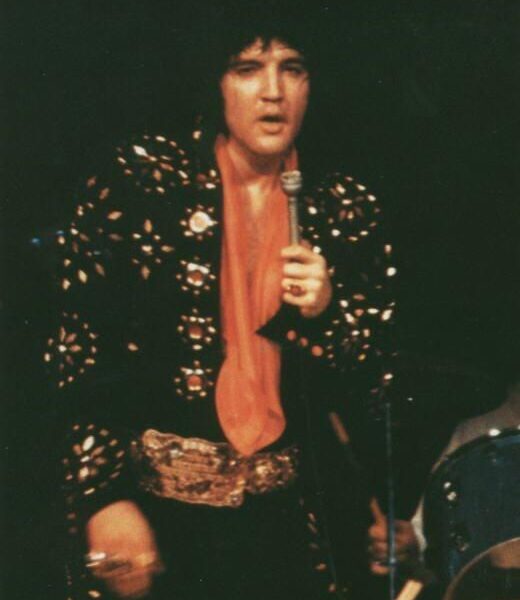“Tomorrow Never Comes,” featured on Elvis Presley’s 1971 album Elvis Country (I’m 10,000 Years Old), is a powerful ballad that showcases the King of Rock ‘n’ Roll’s emotional depth and vocal versatility. Originally written by Ernest Tubb and Johnny Bond, the song delves into themes of heartbreak, regret, and the passage of time. Elvis’s interpretation transforms the song into a deeply personal and hauntingly beautiful experience.

Elvis’s Unique Interpretation
While the original version by Ernest Tubb has a more traditional country feel, Elvis reimagined “Tomorrow Never Comes” with a dramatic flair. His rendition begins softly, with tender vocals and a subdued instrumental arrangement, but as the song progresses, Elvis builds momentum. His voice swells with intensity, reflecting the raw emotion embedded in the lyrics.
The arrangement is a perfect blend of country and pop, with lush strings and a steady rhythm section that complements Elvis’s dynamic vocal performance. The slow build-up to a powerful crescendo is one of the song’s defining features, demonstrating Elvis’s ability to convey profound emotion through both subtlety and power.

Themes of Heartbreak and the Fleeting Nature of Time
At its core, “Tomorrow Never Comes” is a reflection on love and the inevitable heartbreak that often accompanies it. The lyrics express a longing to hold onto fleeting moments, knowing that time cannot be stopped. Lines like “Tomorrow never comes / It only brings heartache and pain”
Elvis’s performance emphasizes the sadness and yearning inherent in the song, making it resonate with anyone who has experienced the ache of unfulfilled promises or lost love.

A Standout Track on Elvis Country
“Tomorrow Never Comes” fits seamlessly into the thematic narrative of Elvis Country, an album that explores Elvis’s roots and his connection to the genre. The album received critical acclaim for its authenticity and emotional depth, with this song standing out as a prime example of Elvis’s ability to reinterpret classic material in a way that felt fresh and deeply personal.

Legacy
While not one of Elvis’s most commercially famous songs, “Tomorrow Never Comes” remains a favorite among fans who appreciate his more introspective and dramatic performances. It highlights Elvis’s mastery of storytelling through music and his unparalleled ability to bring raw emotion to every note.
For listeners seeking a glimpse into the soul of Elvis Presley, “Tomorrow Never Comes” is an unforgettable journey through love, loss, and the inexorable passage of time.

